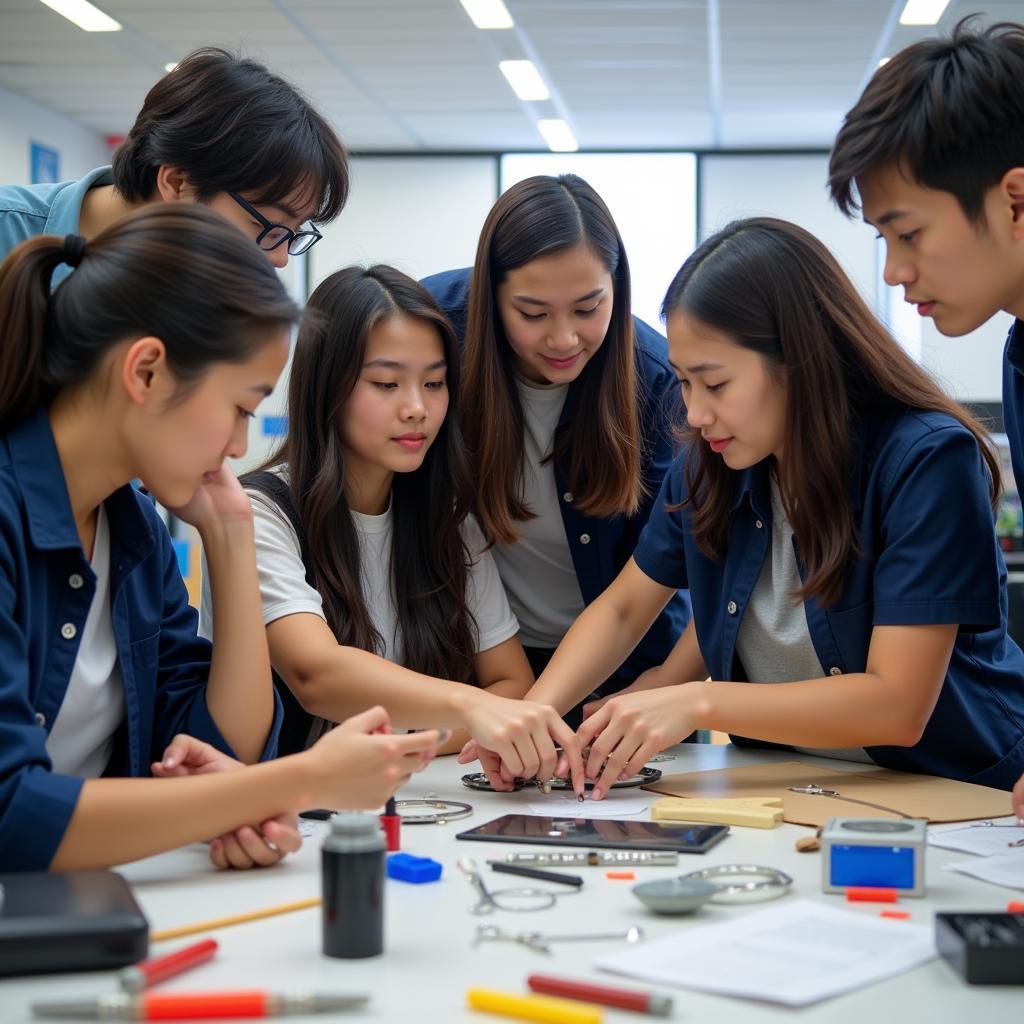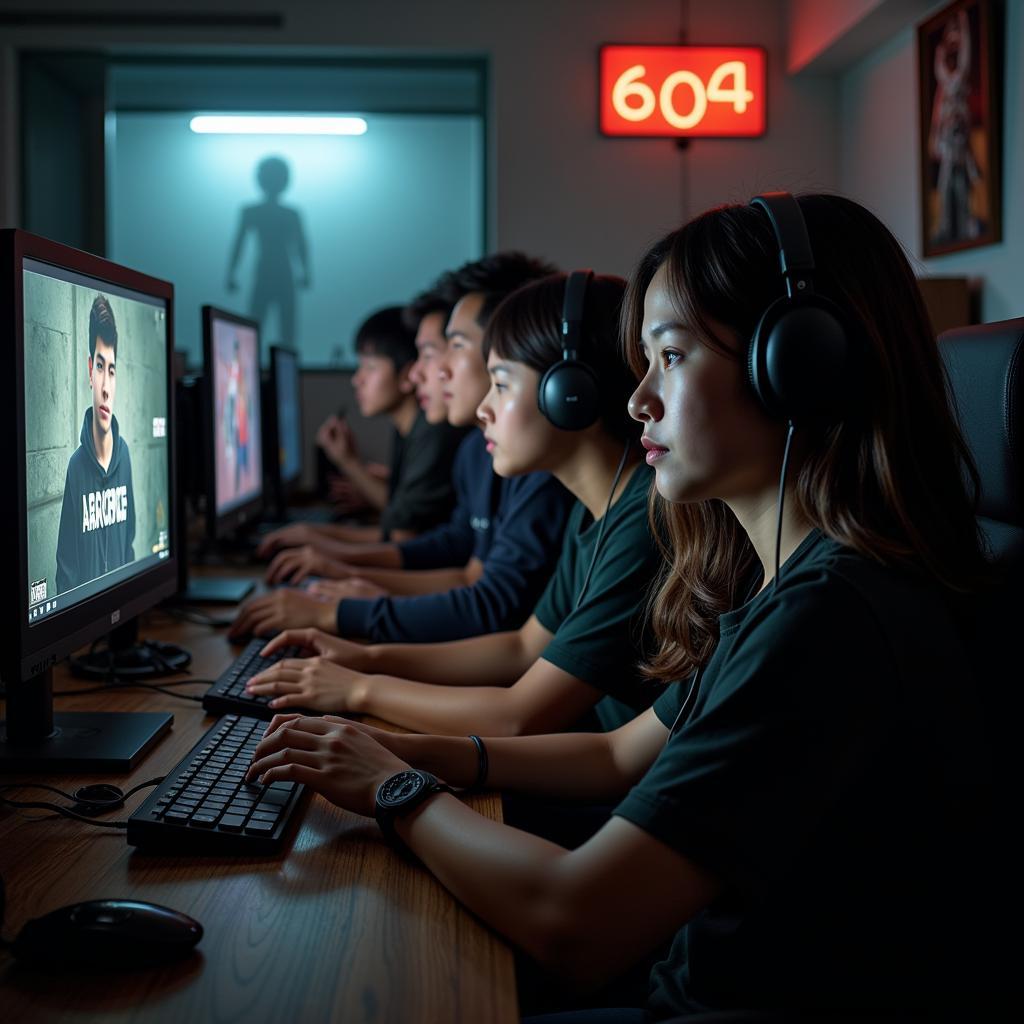The Association of Southeast Asian Nations (ASEAN) is a regional intergovernmental organization comprising ten Southeast Asian countries that promote intergovernmental cooperation and facilitates economic, political, security, military, educational, and sociocultural integration among its members and other countries in Asia and globally.
ASEAN’s primary objective is to accelerate economic growth, social progress, and cultural development in the region through collaborative efforts. Additionally, the organization is committed to promoting regional peace and stability by adhering to the principles outlined in the Treaty of Amity and Cooperation in Southeast Asia.
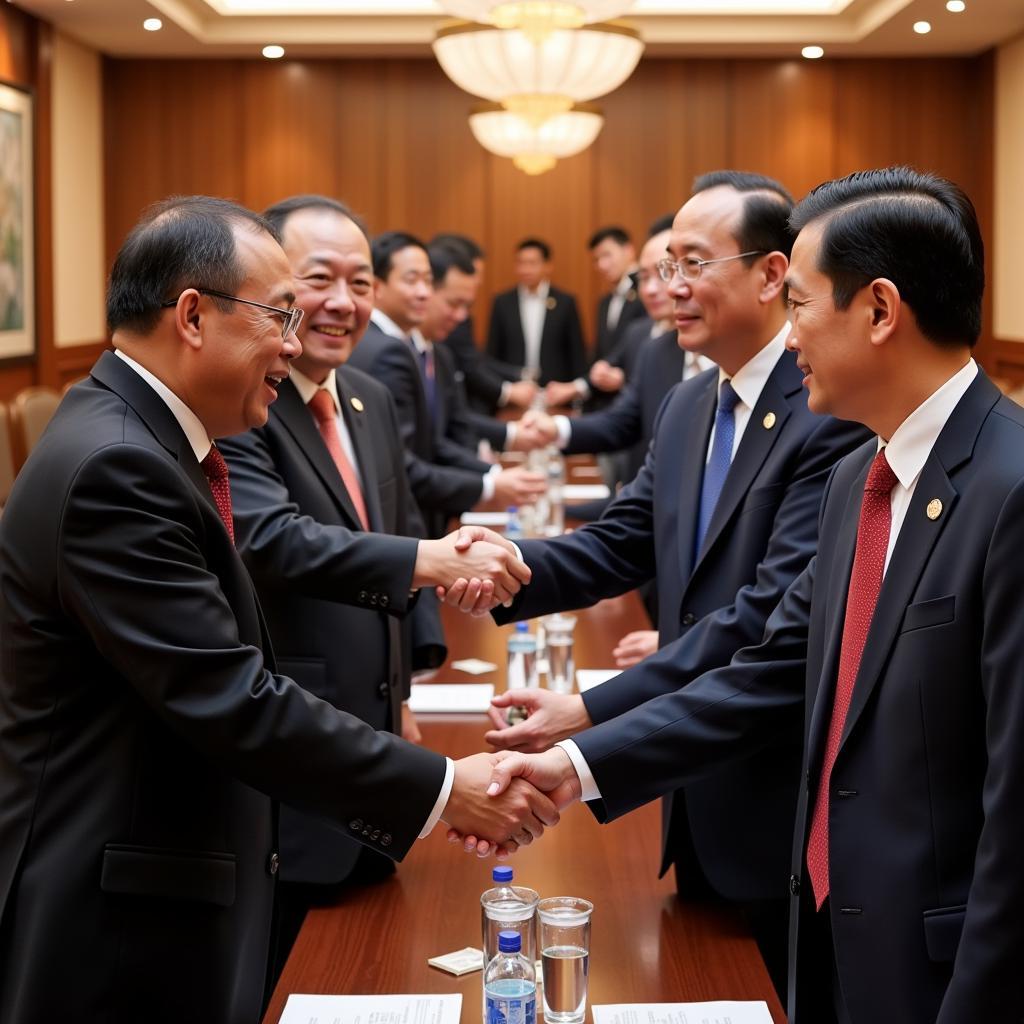 ASEAN Summit
ASEAN Summit
Human Rights in Southeast Asia: Progress and Challenges
Despite ASEAN’s commitment to human rights, the region continues to face numerous challenges in upholding these fundamental freedoms. Persistent issues include:
- Discrimination: Marginalized groups, including ethnic minorities, religious minorities, and LGBTQ+ individuals, often face discrimination and social stigma.
- Freedom of Expression: Restrictions on freedom of expression, including limitations on the press, internet censorship, and criminal defamation laws, persist in several ASEAN member states.
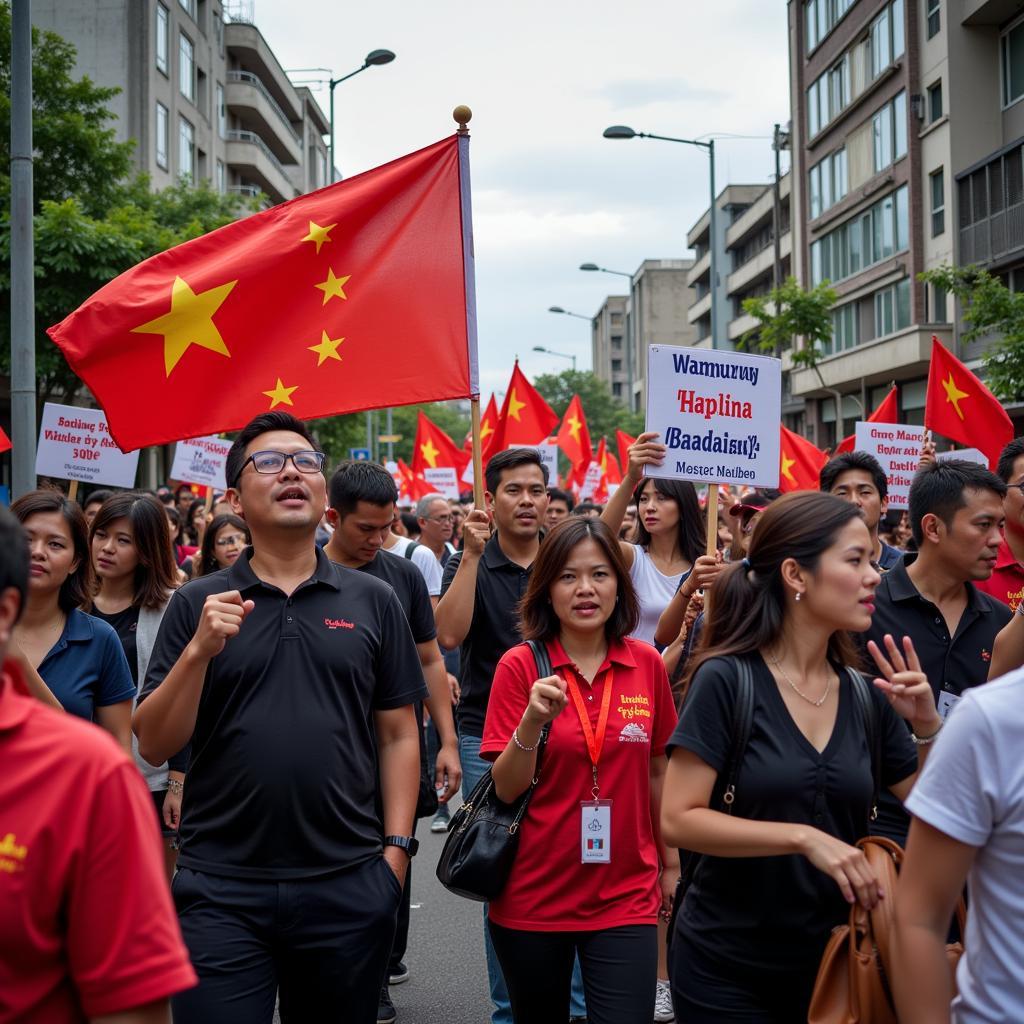 Protests in Southeast Asia
Protests in Southeast Asia
- Human Trafficking: Southeast Asia is a significant source, transit, and destination region for human trafficking. Vulnerable populations, including migrant workers and refugees are particularly susceptible to exploitation.
- Statelessness: The presence of stateless populations, particularly in Myanmar, poses a significant human rights concern. Stateless individuals often lack access to basic rights, including education, healthcare, and legal protection.
ASEAN’s Human Rights Mechanisms: A Work in Progress
ASEAN has established several mechanisms to promote and protect human rights within the region. However, these mechanisms often face criticism for their effectiveness and lack of enforcement power. Key ASEAN human rights instruments include:
- ASEAN Human Rights Declaration (AHRD): Adopted in 2012, the AHRD outlines a comprehensive set of human rights principles and commitments for ASEAN member states. However, the declaration is not legally binding and lacks effective enforcement mechanisms.
- ASEAN Intergovernmental Commission on Human Rights (AICHR): As the principal human rights body within ASEAN, AICHR is mandated to promote and protect human rights and fundamental freedoms in the region.
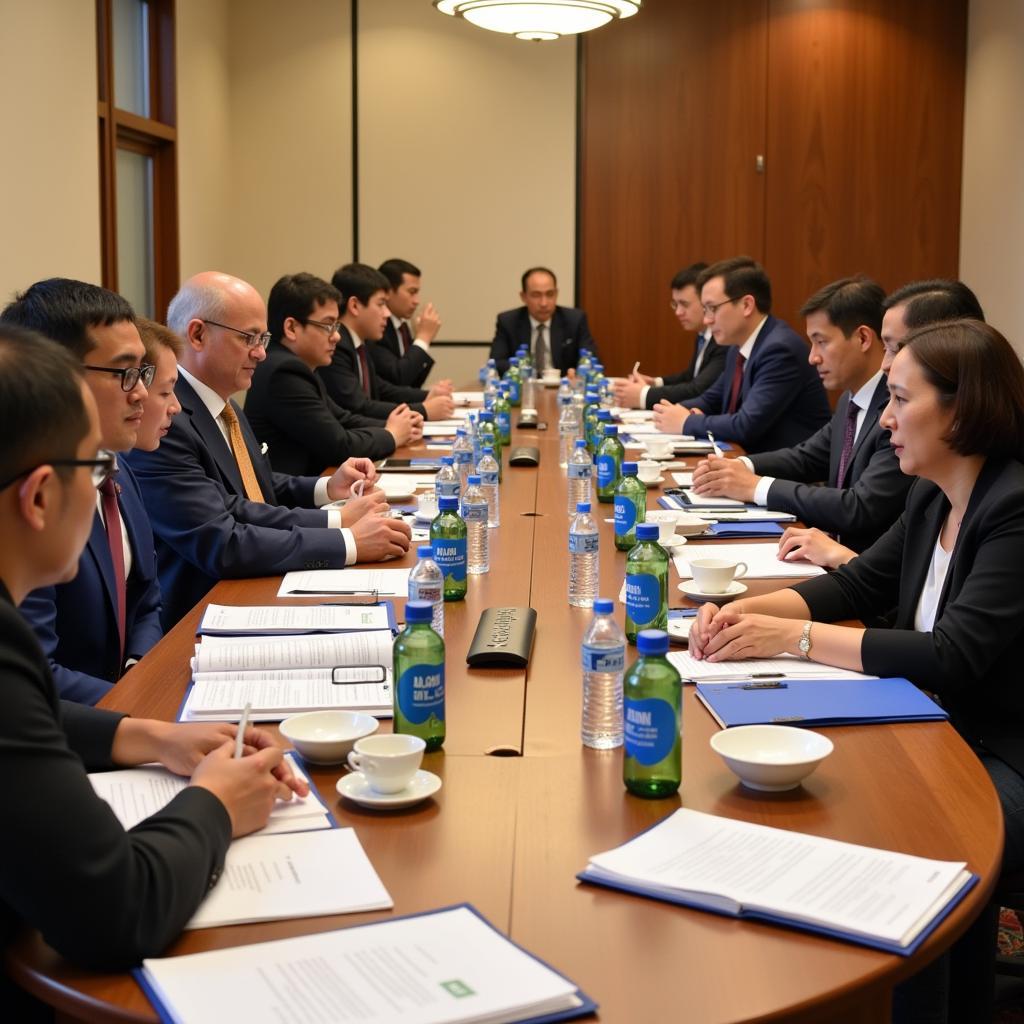 ASEAN Intergovernmental Commission on Human Rights
ASEAN Intergovernmental Commission on Human Rights
- ASEAN Commission on the Promotion and Protection of the Rights of Women and Children (ACWC): Established in 2010, ACWC aims to promote and protect the rights of women and children in the region. The commission focuses on thematic areas such as violence against women, trafficking in persons, and the rights of the child.
The Way Forward: Strengthening Human Rights Protection in ASEAN
Addressing the human rights challenges in Southeast Asia requires a multifaceted approach involving ASEAN member states, civil society organizations, and the international community:
- Strengthening ASEAN Mechanisms: Empowering ASEAN’s human rights mechanisms, including AICHR and ACWC, with greater independence, resources, and enforcement capabilities, is crucial for effectively addressing human rights concerns.
- Promoting Human Rights Education: Integrating human rights education into national curricula at all levels of education will help foster a culture of respect for human rights and fundamental freedoms.
Conclusion
While ASEAN member states have made strides in promoting economic growth and regional cooperation, upholding human rights across Southeast Asia requires ongoing attention and collaborative efforts. ASEAN must prioritize the implementation of its human rights instruments, strengthen national human rights institutions, and engage constructively with civil society organizations to create a more just and equitable region for all.
If you need support, please contact Phone Number: 0369020373, Email: [email protected] Or visit the address: Ngoc Lien Village, Hiep Hoa, Bac Giang, Vietnam. We have a 24/7 customer service team.
